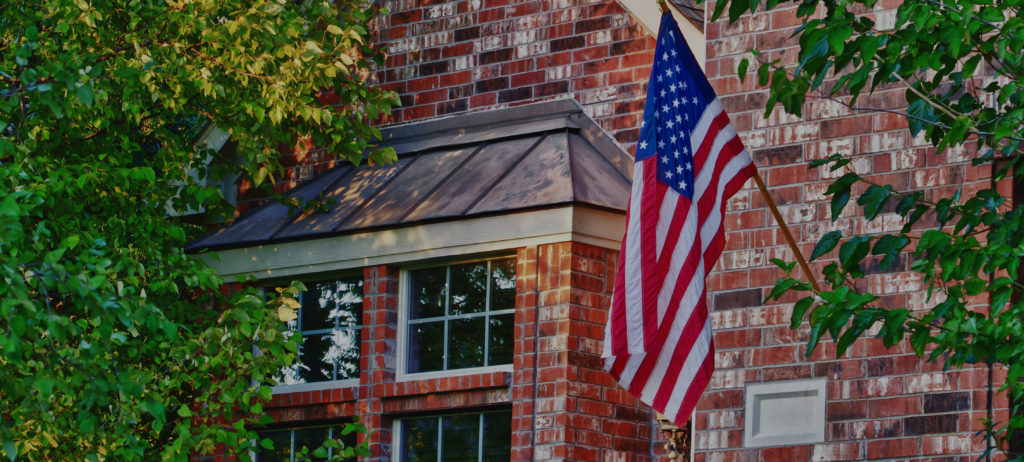Ways to Get the Biggest Tax Break When You Sell Your Home
We all have to pay taxes that’s why it is crucial to educate yourself about taxes and a tax break. Learning how to get the biggest tax break when you sell your home will have you have more money in the bank.

Millions of Americans decide to sell their home, whether moving for a job change and or retiring, especially during this peak time for those baby boomers downsizing. When you are ready to sell, decluttering those 22 years of memories is already exhausting and a rather time-consuming task.
There is more to learn than just the cleaning, and when you are ready to sell, it is important to learn of a financial aspect that can give you a huge break when paying your taxes. It is a valuable tax break offered to sellers of a personal residence, whether it is a house, a condo, or co-op, and it allows for exclusion – meaning, you pay no taxes to the Internal Revenue Service (IRS) – for a certain amount of capital gains on the sale.
The exclusion is capped at $500,000 currently for married couples -who file jointly and $250,000 for singles and married who file separate returns.
What is cost basis?
Starting with the cost basis, the original cost of your home, what can be added to the original cost bases, ie. home improvement and costs incurred, or costs when buying or selling the home (real estate commissions).
Good record-keeping makes this process accessible and convenient. When you added new windows to your home or undertook a large addition, these costs get added to the original cost basis.
Normally, when you sell your home in excess of this cost basis plus the additions, these gains would be subject to taxes on the profit. This profit would be taxed as a long-term capital gain tax, and for high-income sellers, it could be as high as 23.8% federal tax, as well as additional state taxes.
The benefits and qualifications of tax exclusion
A married couple filing jointly can exclude up to $500,000 of profit from any capital gains tax. To qualify, the seller must have lived and owned the property for two out of five years on the last day of the sale. And it does not have to be consecutive years, just as long as it is two of the five years. Sellers can claim exclusion every two years.
Create a file that documents these home improvements as they occur, so it’s easier to get to when the time comes to sell.
When you sell your home after 15 to 30 years, you will more than likely have a capital gain from the sale.
What costs are included?
The IRS set specific guidelines and worksheets to help assist you. Publication 523 – Selling you Home provides insights when you determine your tax implications for filing.
What you can deduct from your gain
Selling Costs
- Your real estate agent’s commission
- Legal fees
- Title insurance
- Inspection fees
- Advertising costs
- Escrow fees
- Legal fees
“You might qualify for a partial exclusion if you sell your home due to circumstances involving divorce, change in employment, change in health, or other unforeseen circumstances” explains the Local Records Office.
Relocating costs
When you sell because of relocating for work, you might be able to also deduct moving expenses, including transportation costs, travel, storage costs, and lodging.
Property taxes
You can deduct property taxes for the portion of the year you owned the home, “up to, but not including the date of sale,” according to the IRS. And the buyer pays to start from the sale date.
Home improvement costs
Home improvements help sell your home and if they are made within 90 days of closing, they are considered selling costs, which are deductible, according to the Local Records Office.
- Additions: bedroom, bathroom, deck, garage, porch, patio
- Lawns and grounds: Landscaping, driveway, walkway, fence, retaining wall, swimming pool
- Systems: Heating, central air conditioning, furnace, duct work, central humidifier, central vacuum, air or water filtration, wiring, security system, lawn sprinklers
- Exterior: Storm windows and doors, new roof, new siding, satellite dish
- Plumbing: Septic system, water heater, soft water system, filtration system
- Insulation: Attic, walls, floors, pipes and ductwork
- Interior: Built-in appliances, kitchen modernization, flooring, wall-to-wall carpeting, fireplace
It is very helpful when you begin to itemize all these improvements before you decide on selling your home. These improvements done over the years should be included in your cost basis before you file your taxes.
Points
When you have paid mortgage points to lower your interest rate when you refinanced, you may qualify for an additional deduction, say the Local Records Office. You can deduct a proportion of the points until the loan is paid, when you pay off your loan through a sale, you can “deduct the remaining values of those points,” says Goodwin.
What you can’t deduct
Home sellers must check with a tax expert to confirm the deductions that are still available in your area and at the time of the sale.
View what tax collectors say on the subject here: IRS Guidelines